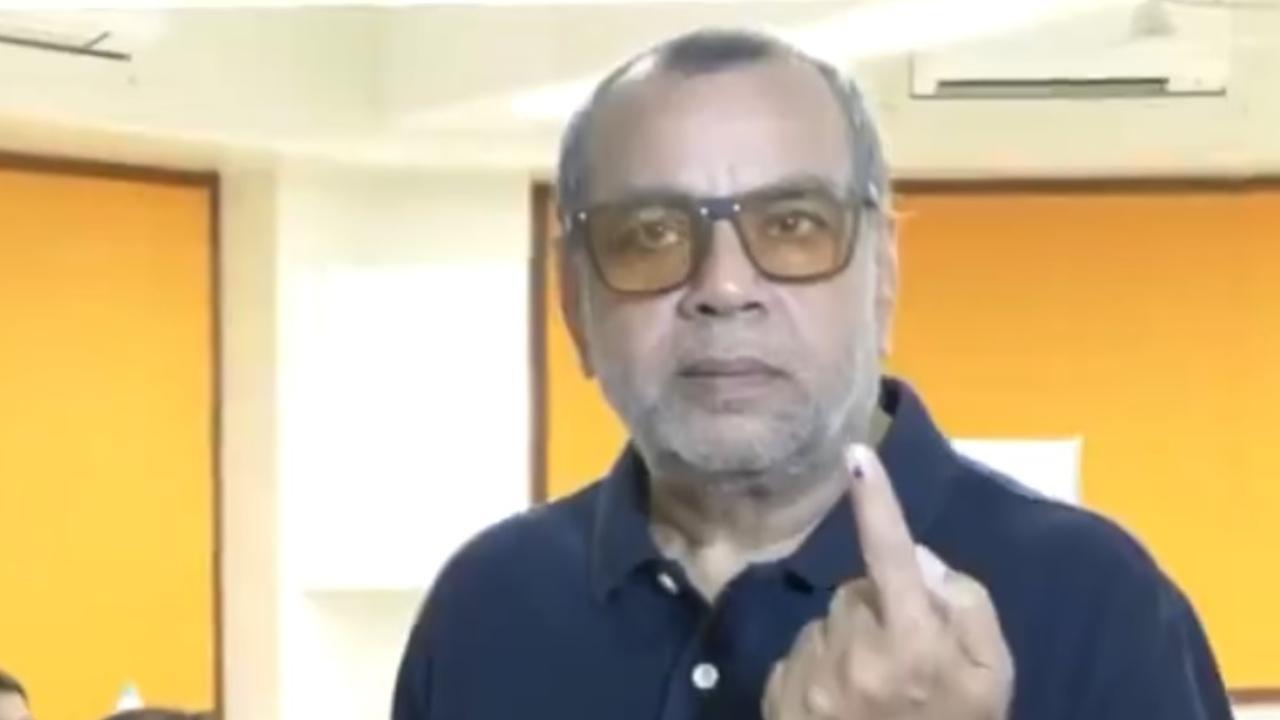
Mumbai, known as India’s entertainment capital and a hotbed of political activity, is undergoing the fervent energy of voting as part of the fifth phase of the ongoing Lok Sabha elections 2024. As citizens throng to polling booths to exercise their democratic rights, notable figures within Bollywood are making their presence felt in support of democracy. One such influential personality, veteran actor Paresh Rawal, not only participated in this essential civic duty but also advocated for stricter measures against those who abstain from voting.
Paresh Rawal, who has long been an advocate for political engagement, was among the early voters at his local polling station in Mumbai. His visit garnered significant media attention, and it was during this interaction with the press that he passionately spoke about the necessity of voting. Rawal, visibly moved by the gravity of the election process, offered a compelling argument emphasizing the vital role that each vote plays in shaping the governance of the country.
“Then you will say, the government doesn’t do this, doesn’t do that… If you do not vote today, then you will be responsible, not the government,” Rawal expressed sternly, reflecting his sentiment that non-voters lose their right to criticize government policies. He wasn’t just making a rhetorical point; Rawal proposed concrete actions to ensure higher voter turnout. In his view, failing to participate in the electoral process should come with repercussions.
“There must be some provisions for those who don’t vote, like an increase in tax or some other punishment,” the acclaimed actor suggested. This radical proposal sparked a considerable debate, infusing the ongoing election coverage with discussions about civic responsibility and voter apathy. Rawal’s comments underscore a growing frustration among many public figures about the complacency seen in segments of the voting population.
This call for punitive measures is not without reason. Maharashtra, the second-largest state in terms of parliamentary constituencies with 48 seats, plays a crucial role in the formation of the national government.
. Ensuring high voter turnout is essential for a robust democratic process. Rawal’s perspective signifies a broader sentiment shared by various stakeholders emphasizing the moral duty of citizens to engage in the electoral process.
As the polling day began, several Bollywood celebrities were spotted at their designated polling booths. Icons such as Akshay Kumar, Shahid Kapoor, Sanya Malhotra, Kunal Kemmu, Neha Dhupia, Rajkummar Rao, and Janhvi Kapoor joined their fellow citizens in casting their ballots. Their active participation serves as an important visual reminder of the significance of voting. The influence of these celebrities, who lead by example, cannot be understated in encouraging voter turnout.
The fifth phase of the Lok Sabha elections encompasses six significant constituencies in Mumbai: Mumbai North, Mumbai North West, Mumbai North East, Mumbai North Central, Mumbai South, and Mumbai South Central. Additionally, several other constituencies in Maharashtra are participating in this phase, including Dhule, Dindori, Nashik, Kalyan, Palghar, Bhiwandi, and Thane. This phase is part of a seven-phase election process stretching from April 19 to June 1, reflecting the extensive logistical efforts required for a nation as vast and diverse as India.
Significant planning and security arrangements have been put in place to ensure a smooth voting process. Polling commenced at 7 am and is set to continue until 6 pm, with provisions allowing voters already in line by closing time to stay and cast their ballots. The outcome of these elections will be known when counting begins on June 4, and the results are eagerly awaited by a nation poised at a critical juncture.
The conversation sparked by Paresh Rawal’s statements on punitive measures for non-voters adds an interesting layer to the ongoing electoral narrative. His proposal for increased taxes or other forms of punishment for abstaining voters is likely to continue to stir debate as India moves through the remaining phases of its elections. Regardless of where one stands on his suggestion, Rawal has undeniably drawn attention to the fundamental importance of every citizen’s vote in the democratic process.
As India’s electoral journey continues, the resonant voices of its influencers, the meticulous arrangements by the Election Commission, and the active participation of its citizens highlight the vibrancy of the world’s largest democracy.












